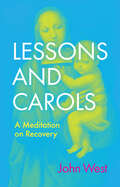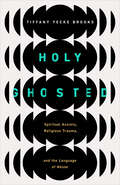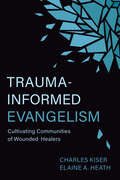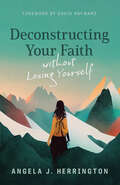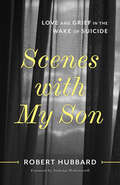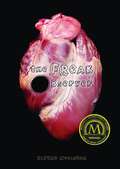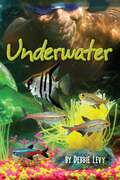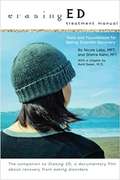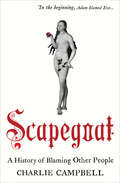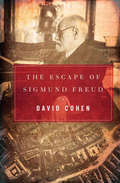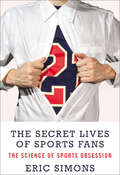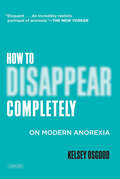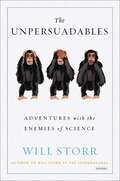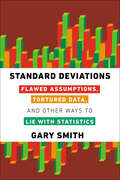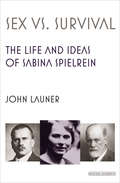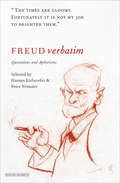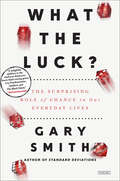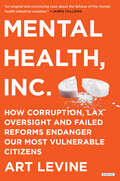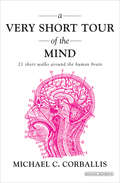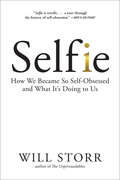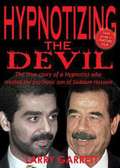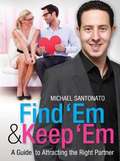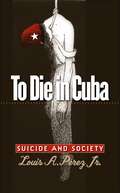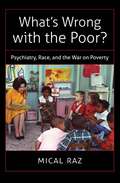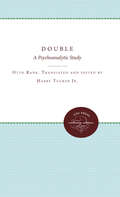- Table View
- List View
Lessons and Carols: A Meditation on Recovery
by John WestMaybe redemption is not a place you find, but a system of mapmaking. Sketch a land. Pencil in dragons. Imagine it real, resplendent, and broken under a waxing moon.Lessons and Carols is a genre-bending memoir that explores the aftershocks of alcoholism and mental illness through a fresh look at the powers of poetry, ritual, and community. As a new parent, West grapples with his own fragmented recovery and grief for the friends he lost to addiction, asking if anyone can really change, or if we are always bound to repeat the past.Echoing the form of a traditional Anglican Christmas service of stories and songs, West&’s lyrical prose invites readers into an unorthodox rendition of the liturgy called Lessons and Carols. Each December, a faithful circle of irreligious friends assembles to eat and sing and re-imagine an old story about love made flesh. In that gathering&’s glow, resentments turn to quiet wonder at the ways a better world can appear.Both tender and bracing, West&’s poetic meditation of the possibilities of change will resonate deeply with anyone who has tired of their own destructive loops. In this stirring account of recovery, redemption remains elusive—and also a promise as tangible as a newborn.Hardscrabble winter, gray and lonely, requires Christmas. Or, rather, in its depths, I require Christmas: words no longer cold, chrome, and barren, but alive, golden, cradled in my arms.
Holy Ghosted: Spiritual Anxiety, Religious Trauma, and the Language of Abuse
by Tiffany Yecke BrooksHow to recognize the tactics of spiritual abuse—and save your faith Are you questioning the church of your upbringing but want to maintain your faith? Do you want to cut ties with your denomination, but fear abandonment by God? Are you struggling with spiritual anxiety—fear of hell, obsessive religious ritual, or feelings of never measuring up? Tiffany Yecke Brooks first explored reconstructing faith in Gaslighted by God. In this much needed follow-up, she equips readers to understand and name tactics of spiritual abuse and manipulation. Each chapter covers a different method of control found in toxic religious communities—including legalism, indoctrination, praise, and fear—and how to identify and respond to it in a healthy way. Brooks also reframes scriptural passages commonly weaponized by those in power. Weaving together interviews with diverse Christians and her own experience, Brooks offers a voice to those feeling isolated by spiritual anxiety. Empowered by this guide, readers will learn to trust their intuition, seek truth fearlessly, and love God and neighbor without restraint or fear.
Trauma-Informed Evangelism: Cultivating Communities of Wounded Healers
by Charles Kiser Elaine Heath&“We are at the forefront of a new reformation.&” So declares Elaine Heath in Trauma-Informed Evangelism, aiming to recover the God of love from the structures of hate that pervade Christian communities in America today. In their new guide, she and Charles Kiser work toward bringing this reformation to fruition through ministering specifically to the spiritually traumatized. Over the course of their study, Kiser and Heath amplify the voices of those who suffered misogynistic, racist, or homophobic abuse at the hands of the church. While carefully listening to these stories, Kiser and Heath bring them into conversation with the passion and resurrection of Jesus. Engaging with womanist and liberation theology, they see in the crucifixion a God who does not valorize suffering but shares the experience of the traumatized. Ultimately, this theodicy leads them to propose a new evangelism—one based not on fear and coercion but on witnessing the unconditional love of God. Timely, theologically informed, and eminently practical, Trauma-Informed Evangelism will serve as a formative guide for church leaders and students seeking to aid trauma survivors in their communities. Discussion questions conclude each chapter.
Deconstructing Your Faith without Losing Yourself
by Angela J. HerringtonHow to heal religious trauma by releasing harmful beliefs Have you experienced #ChurchHurt? Are you frustrated by judgmental church people supporting oppressive systems? Do you have doubts about the faith tradition you were raised in but are afraid of losing your community? Angela J. Herrington has been there. And with over a decade of experience as a life coach, she can teach you how to begin healing religious trauma through deconstruction. Lively and empathetic, Angela will gently guide you through deconstructing your faith. This concise and actionable handbook will • give you permission to trust yourself, • show you how to seek new perspectives and information, • teach you how to embrace vulnerable exploration and self-compassion, and • help you release unhealthy beliefs that are harming you and marginalized persons. Deconstructing your long-held beliefs can be isolating and overwhelming. But you don&’t have to do it alone. Begin your healing journey with Deconstructing Your Faith without Losing Yourself.
Scenes with My Son: Love and Grief in the Wake of Suicide
by Robert HubbardA celebration and an elegy, Scenes with My Son sensitively renders the terrible privilege of grief in the wake of suicide.After years of battling clinical depression exacerbated by autism, Auggie Hubbard died by suicide at the age of 19. In this poignant tribute to his son, Robert Hubbard—a theatre scholar and actor—stages Auggie&’s life in a series of vivid and tender scenes: Auggie&’s insatiable hunger for Accelerated Reader points. His tireless lightsaber practice in the local park. His sonorous tuba practice in the ward of his inpatient program. Through these anecdotes of Auggie&’s life and the days following his death, readers journey with a family shaken by mental illness and share in their hard-won joys in defiance of depression.Refusing easy answers and clichés about &“God&’s plan,&” Hubbard unflinchingly asks: Does faith matter amid such tragedy? What do you do when awareness isn&’t enough? When you&’ve tried so hard to keep your child safe, but your efforts fail? His honesty and vulnerability—and his tender portrait of Auggie—are gifts to all who live with their own questions in the wake of a loved one&’s death.
The Freak Observer
by Blythe WoolstonThe Freak Observer is rich in family drama, theoretical physics, and an unusual, tough young woman—Loa Lindgren. For eight years, Loa Sollilja's world ran like one of those mechanical models of the solar system, with her baby sister, Asta, as the sun. Asta suffered from a genetic disorder that left her a permanent infant, and caring for her was Loa's life. Everything spun neatly and regularly as the whole family orbited around Asta. But now Asta's dead, and 16-year-old Loa's clockwork galaxy has collapsed. As Loa spins off on her own, her mind ambushes her with vivid nightmares and sadistic flashbacks―a textbook case of PTSD. But there are no textbook fixes for Loa's short-circuiting brain. She must find her own way to pry her world from the clutches of death. The Freak Observer is a startling debut about death, life, astrophysics, and finding beauty in chaos.
Underwater (Exceptional Reading And Language Arts Titles For Intermediate Grades Ser.)
by Debbie LevyTwelve-year-old Gabe has ambitions to be the next Jacques Cousteau...or Bill Gates...or who? Gabe's anxiety about growing up is matched by his fear that he'll be crazy (like his brother). But he finds some relief in his underwater computer game, setting up his own aquarium, and swimming on the local team. Could it be that some things will just take care of themselves?
Erasing ED Treatment Manual: Tools And Foundations For Eating Disorder Recovery
by Sheira Kahn-Laby Kahn Sheira Kahn Mft Nicole Laby MftThe Erasing ED Treatment Manual, a companion to the award-winning documentary aired nationally on PBS, provides a digest of information on the assessment, diagnosis, medical aspects, causes and treatment of eating disorders. It is written for mental and physical health-care providers, but clear language makes it accessible to non-professionals.
Scapegoat: A History of Blaming Other People
by Charlie CampbellA “brief and vital account” of humanity’s long history of playing the blame game, from Adam and Eve to modern politics—“a relevant and timely subject” (The Daily Telegraph). We may have come a long way from the days when a goat was symbolically saddled with all the iniquities of the children of Israel and driven into the wilderness, but has our desperate need to absolve ourselves by pinning the blame on someone else really changed all that much? Charlie Campbell highlights the plight of all those others who have found themselves in the wrong place at the wrong time, illustrating how God needs the Devil as Sherlock Holmes needs Professor Moriarty or James Bond needs “Goldfinger.” Scapegoat is a tale of human foolishness that exposes the anger and irrationality of blame-mongering while reminding readers of their own capacity for it. From medieval witch burning to reality TV, this is a brilliantly relevant and timely social history that looks at the obsession, mania, persecution, and injustice of scapegoating. “A wry, entertaining study of the history of blame . . . Trenchantly sardonic.” —Kirkus Reviews
The Escape of Sigmund Freud
by David CohenThe “gripping” true story of the founder of psychoanalysis—and how he made it out of Austria after the Nazi takeover (The Independent). Sigmund Freud was not a practicing Jew, but that made no difference to the Nazis as they burned his books in the early 1930s. Goebbels and Himmler wanted all psychoanalysts, especially Freud, dead, and after the annexation of Austria, it became clear that Freud needed to leave Vienna. But a Nazi raid on his house put the Freuds’ escape at risk. With never-before-seen material, this biography reveals details of the last two years of Freud’s life, and the people who helped him in his hour of need—among them Anton Sauerwald, who defied his Nazi superiors to make the doctor’s departure possible. The Escape of Sigmund Freud also delves into the great thinker’s work, and recounts the arrest of Freud’s daughter, Anna, by the Gestapo; the dramatic saga behind the signing of Freud’s exit visa and his eventual escape to London; and how the Freud family would have an opportunity to save Sauerwald’s life in turn. “Full of fascinating insights and anecdotes . . . Cohen draws copiously on the correspondence between Freud and [his nephew] Sam to paint a vivid picture of their complex and deeply troubled family.” —Daily Mail “An illuminating look at the end of the life of a giant of psychology.” —Kirkus Reviews
The Secret Lives of Sports Fans: The Science of Sports Obsession
by Eric SimonsSports fandom is either an aspect of a person's fundamental identity, or completely incomprehensible to those who aren't fans at all. What is happening in our brains and bodies when we feel strong emotion while watching a game? How do sports fans resemble political junkies, and why do we form such a strong attachment to a sports team? Journalist Eric Simons presents in-depth research in an accessible and brilliant way, sure to interest readers of Jonah Lehrer and Malcolm Gladwell. Through reading the literature and attending neuroscience conferences, talking to fans, psychologists, and scientists, and working through his issues as part of a collaboration with the NPR science program RadioLab, Eric Simons hoped to find an answer that would explain why the attractive force of this relationship with treasured sports teams is so great that we can't leave it.
How to Disappear Completely: On Modern Anorexia
by Kelsey OsgoodAt fourteen, Kelsey Osgood became fascinated by the stories of women who starved themselves. She devoured their memoirs and magazine articles, committing the most salacious details to memory to learn what it would take to be the very best anorexic. When she was hospitalized at fifteen, she found herself in an existential wormhole: how can one suffer from something one has actively sought out? With attuned storytelling and unflinching introspection, Kelsey Osgood unpacks the modern myths of anorexia as she chronicles her own rehabilitation. How to Disappear Completely is a brave, candid and emotionally wrenching memoir that explores the physical, internal, and social ramifications of eating disorders.
The Unpersuadables: Adventures with the Enemies of Science
by Will StorrWhile excavating fossils in the tropics of Australia with a celebrity creationist, Will Storr asked himself a simple question. Why don't facts work? Why, that is, did the obviously intelligent man beside him sincerely believe in Adam and Eve, the Garden of Eden and a six-thousand-year-old Earth, in spite of the evidence against them? It was the start of a journey that would lead Storr all over the world--from Texas to Warsaw to the Outer Hebrides--meeting an extraordinary cast of modern heretics whom he tries his best to understand. Storr tours Holocaust sites with famed denier David Irving and a band of neo-Nazis, experiences his own murder during "past life regression" hypnosis, discusses the looming One World Government an iconic climate skeptic, and investigates the tragic life and death of a woman who believed her parents were high priests in a baby-eating cult. Using a unique mix of highly personal memoir, investigative journalism, and the latest research from neuroscience and experimental psychology, Storr reveals how the stories we tell ourselves about the world invisibly shape our beliefs, and how the neurological "hero maker" inside us all can so easily lead to self-deception, toxic partisanship and science denial.
Standard Deviations: Flawed Assumptions, Tortured Data, and Other Ways to Lie with Statistics
by Gary SmithDid you know that baseball players whose names begin with the letter "D" are more likely to die young? Or that Asian Americans are most susceptible to heart attacks on the fourth day of the month? Or that drinking a full pot of coffee every morning will add years to your life, but one cup a day increases the risk of pancreatic cancer? All of these "facts" have been argued with a straight face by credentialed researchers and backed up with reams of data and convincing statistics.As Nobel Prize-winning economist Ronald Coase once cynically observed, "If you torture data long enough, it will confess." Lying with statistics is a time-honored con. In Standard Deviations, economics professor Gary Smith walks us through the various tricks and traps that people use to back up their own crackpot theories. Sometimes, the unscrupulous deliberately try to mislead us. Other times, the well-intentioned are blissfully unaware of the mischief they are committing. Today, data is so plentiful that researchers spend precious little time distinguishing between good, meaningful indicators and total rubbish. Not only do others use data to fool us, we fool ourselves.With the breakout success of Nate Silver's The Signal and the Noise, the once humdrum subject of statistics has never been hotter. Drawing on breakthrough research in behavioral economics by luminaries like Daniel Kahneman and Dan Ariely and taking to task some of the conclusions of Freakonomics author Steven D. Levitt, Standard Deviations demystifies the science behind statistics and makes it easy to spot the fraud all around.
Sex Versus Survival: The Life and Ideas of Sabina Spielrein
by John LaunerThe first full and accessible account of one of the most significant and overlooked figures in the field of sexual psychology Who was Sabina Spielrein? She is probably best known for her notorious affair with Carl Jung, which was dramatized in the film A Dangerous Method, starring Keira Knightley. Yet her life story is much more compelling than just one famous relationship. Spielrein overcame family and psychological abuse to become a profoundly original thinker in her own right. Sex Versus Survival is the first biography to put her life and ideas at the center of the story and examine Spielrein's key role in the development of psychoanalysis. Drawing on fresh research into Spielrein's diaries, papers, and correspondence, John Launer shows how Spielrein's overlooked ideas--rejected by Freud and Jung but substan-tially vindicated by later developments in psychol-ogy and evolutionary biology--may represent the last and most important stage in the rediscovery of an extraordinary life.
Freud Verbatim: Quotations and Aphorisms
by Sigmnd FreudThe founder of psychoanalysis and one of the twentieth century’s most influential thinkers, in his own words. Sigmund Freud is on the very short list of historical figures who have profoundly influenced—perhaps even revolutionized—the way we think and the way we see the world and ourselves. This book compiles quotes, maxims, observations, and witticisms from the founder of psychoanalysis and the popularizer of such terms as ego, superego, and id. Covering subjects ranging from politics and religion to love and sex, this collection assembles passages from Freud’s major works, as well as making use of personal letters to his friends and family. Organized into ten thematic chapters, this thought-provoking compilation provides a representative look into all of Freud’s work.
What the Luck?: The Surprising Role of Chance in Our Everyday Lives
by Gary SmithThe newest book by the acclaimed author of Standard Deviations takes on luck, and all the mischief the idea of luck can cause in our lives. In Israel, pilot trainees who were praised for doing well subsequently performed worse, while trainees who were yelled at for doing poorly performed better. It is an empirical fact that highly intelligent women tend to marry men who are less intelligent. Students who get the highest scores in third grade generally get lower scores in fourth grade. And yet, it's wrong to conclude that screaming is not more effective in pilot training, women choose men whose intelligence does not intimidate them, or schools are failing third graders. In fact, there's one reason for each of these empirical facts: Statistics. Specifically, a statical concept called Regression to the Mean. Regression to the mean seeks to explain, with statistics, the role of luck in our day to day lives. An insufficient appreciation of luck and chance can wreak all kinds of mischief in sports, education, medicine, business, politics, and more. It can lead us to see illness when we are not sick and to see cures when treatments are worthless. Perfectly natural random variation can lead us to attach meaning to the meaningless. Freakonomics showed how economic calculations can explain seemingly counterintuitive decision-making. Thinking, Fast and Slow, helped readers identify a host of small cognitive errors that can lead to miscalculations and irrational thought. In What the Luck?, statistician and author Gary Smith sets himself a similar goal, and explains--in clear, understandable, and witty prose--how a statistical understanding of luck can change the way we see just about every aspect of our lives...and can help us learn to rely less on random chance, and more on truth.
Mental Health Inc: How Corruption, Lax Oversight, And Failed Reforms Endanger Our Most Vulnerable Citizens
by Art LevineThe no-holds-barred and crucial call to action for America’s broken mental health system, by a prize-winning investigative journalist The mental health system in America is hardly the front-burner issue it should be, despite lip service about reform after each new tragic mass killing. Yet every American should care deeply about fixing a system a presidential commission reported was in “shambles.” By some measures, 20 percent of Americans have some sort of mental health condition, including the most vulnerable among us—veterans, children, the elderly, prisoners, the homeless. With Mental Health, Inc., award-winning investigative journalist Art Levine delivers a Shock Doctrine-style exposé of the failures of our out of control, profit-driven mental health system, with a special emphasis on dangerous residential treatment facilities and the failures of the pharmaceutical industry, including the overdrugging of children with antipsychotics and the disastrous maltreatment of veterans with PTSD by the scandal-wracked VA. Levine provides compelling narrative portraits of victims who needlessly died and some mentally ill people who won unexpected victories in their lives by getting smart, personalized help from “pyschosocial” programs that incorporate safe and appropriate prescribing, along with therapy and social support. He contrasts their stories with corrupt Big Pharma executives and researchers who created fraudulent marketing schemes. Levine also tells the dramatic David vs. Goliath stories of a few brave reformers, including Harvard-trained psychiatrist and researcher Dr. Stefan Kruszewski, who has acted as a whistleblower in several major cases, leading to important federal and state settlements; in addition, the book spotlights pioneering clinicians challenging outmoded, drug-and-sedate practices that leave 90 percent of people with serious mental illness too disabled to work. By taking a comprehensive look at mental health abuses and dangerous, ineffective practices as well as pointing toward solutions for creating a system for effective, proven and compassionate care, Art Levine’s essential Mental Health, Inc. is a call to action for politicians and citizens alike—needed now more than ever.
A Very Short Tour of the Mind: 21 Short Walks Around the Human Brain
by Michael C. Corballis“Thoroughly enjoyable” essays from a cognitive neuroscientist, filled with surprising facts (Kirkus Reviews, starred review). Modern computers might be faster, and whales might have larger brains, but neither can match the sheer intellect or capacity for creativity that the human mind enjoys. It is arguably the most complex organ in the universe. If you’ve ever wondered why your dog can remember where it buried its bone but you can’t find your keys, or whether it’s true that we use only ten percent of our brainpower, this concise book offers some answers—and introduces us to what science has learned about the intricacies of the human brain over the last fifty years. Leading us through behavioral experiments and neuroscience, cognitive theory and Darwinian evolution, Michael Corballis punctures a few hot-air balloons, and explains just what we know—and don’t know—about our own minds. “Poses questions we wouldn’t have thought to ask and then answers them with clarity and wit.” —American Scientist
Selfie: How We Became So Self-obsessed And What It's Doing To Us
by Will Storr“In this fascinating psychological and social history, Storr reveals how biology and culture conspire to keep us striving for perfection, and the devastating toll that can take.” —The Washington Post We are living in an age of heightened individualism. Success is a personal responsibility. Our culture tells us that to succeed is to be slim, rich, happy, extroverted, popular—flawless. We have become self-obsessed. And our expectation of perfection comes at a cost. Millions are suffering under the torture of this impossible fantasy. The pressure to conform to this ideal has changed who we are. It was not always like this. To explain how we got here, award-winning journalist Will Storr leads us on a “terrific tour through the history of self-obsession” (NPR, On Point) that explores the origins of this notion of the perfect self that torments so many of us: Where does this ideal come from? Why is it so powerful? Is there any way to break its spell? Full of thrilling and unexpected connections among history, psychology, economics, neuroscience, and more, Selfie is an unforgettable book that makes sense of who we have become. Ranging from Ancient Greece, through the Christian Middle Ages, to the self-esteem evangelists of 1980s California, the rise of the “selfie” generation, and the era of hyper-individualism in which we live now, Selfie tells the epic tale of the person we all know so intimately—because it’s us.
Hypnotizing the Devil: The True Story of a Hypnotist Who Treated the Psychotic Son of Saddam Hussein
by Larry GarrettEveryone remembers where they were during the September 11 attacks in New York. Larry Garrett, a Chicago hypnotist will never forget, since he was in Saddam Husseins palace in Baghdad with Uday Hussein, Saddams eldest son. After an assassination attempt on Udays life, Larry Garrett was brought in to help with the recovery from the mental and physical pain. Larry writes about his account of dealing with the man often referred to as a psychopath, the CIA, a palace full of guards with machine guns, and visiting Babylon. The conversations about American culture and Uday Hussein's very surprising views, to getting the behind the scenes account at the palace as a World War begins. Larrys account of being the only American allowed into Iraq and hypnotizing the son of the most feared family in the World, will keep you in suspense. Larry Garrett has been in practice since 1968, operating the largest hypnosis centre in Chicago. He has received nationwide recognition for his outstanding contributions in hypnosis, including the 1991 Metzinger Award (which has only been presented six times) for contributions to the field of hypnosis.
Find 'Em & Keep 'Em: A Guide to Attracting the Right Partner
by Michael SantonatoFind Em & Keep Em is not about dating. You've got enough books and blogs for that. Instead, it is about getting to know yourself, what you want, and what you have to offer within a relationship. By mastering who you are, and what is at play in the dynamics of attraction and magnetism, you will be able to understand why you haven't had those great partners and relationships in the past. And how you can start to have them now! "There is no reason why someone can't be in a fulfilling relationship with someone they love." It's about becoming the kind of person who can be with anyone you want to be with and naturally attracting him or her in record speed. This book is essential if you want to get off the fence and get into a great relationship!
To Die in Cuba
by Louis A. PérezFor much of the nineteenth century and all of the twentieth, the per capita rate of suicide in Cuba was the highest in Latin America and among the highest in the world--a condition made all the more extraordinary in light of Cuba's historic ties to the Catholic church. In this richly illustrated social and cultural history of suicide in Cuba, Louis A. Perez Jr. explores the way suicide passed from the unthinkable to the unremarkable in Cuban society.In a study that spans the experiences of enslaved Africans and indentured Chinese in the colony, nationalists of the twentieth-century republic, and emigrants from Cuba to Florida following the 1959 revolution, Perez finds that the act of suicide was loaded with meanings that changed over time. Analyzing the social context of suicide, he argues that in addition to confirming despair, suicide sometimes served as a way to consecrate patriotism, affirm personal agency, or protest injustice. The act was often seen by suicidal persons and their contemporaries as an entirely reasonable response to circumstances of affliction, whether economic, political, or social.Bringing an important historical perspective to the study of suicide, Perez offers a valuable new understanding of the strategies with which vast numbers of people made their way through life--if only to choose to end it. To Die in Cuba ultimately tells as much about Cubans' lives, culture, and society as it does about their self-inflicted deaths.For much of the nineteenth century and all of the twentieth, the per capita rate of suicide in Cuba was the highest in Latin America and among the highest in the world--a condition made all the more extraordinary in light of Cuba's historic ties to the Catholic church. In this richly illustrated social and cultural history of suicide in Cuba, Louis A. Perez Jr. explores the way suicide passed from the unthinkable to the unremarkable in Cuban society. To Die in Cuba ultimately tells as much about Cubans' lives, culture, and society as it does about their self-inflicted deaths.-->
What's Wrong with the Poor?
by Mical RazIn the 1960s, policymakers and mental health experts joined forces to participate in President Lyndon Johnson's War on Poverty. In her insightful interdisciplinary history, physician and historian Mical Raz examines the interplay between psychiatric theory and social policy throughout that decade, ending with President Richard Nixon's 1971 veto of a bill that would have provided universal day care. She shows that this cooperation between mental health professionals and policymakers was based on an understanding of what poor men, women, and children lacked. This perception was rooted in psychiatric theories of deprivation focused on two overlapping sections of American society: the poor had less, and African Americans, disproportionately represented among America's poor, were seen as having practically nothing. Raz analyzes the political and cultural context that led child mental health experts, educators, and policymakers to embrace this deprivation-based theory and its translation into liberal social policy. Deprivation theory, she shows, continues to haunt social policy today, profoundly shaping how both health professionals and educators view children from low-income and culturally and linguistically diverse homes.
The Double: A Psychoanalytic Study
by Harry Tucker Otto RankAlive, fresh, and stimulating, the theme of The Double comprises the issues of identity, narcissism, and the fear of death--actually the core of human existence. Rank's book is primarily a study of the double as it appeared in striking examples in German, French, Russian, English, and American literature from Goethe to Oscar Wilde.Originally published in 1971.A UNC Press Enduring Edition -- UNC Press Enduring Editions use the latest in digital technology to make available again books from our distinguished backlist that were previously out of print. These editions are published unaltered from the original, and are presented in affordable paperback formats, bringing readers both historical and cultural value.
